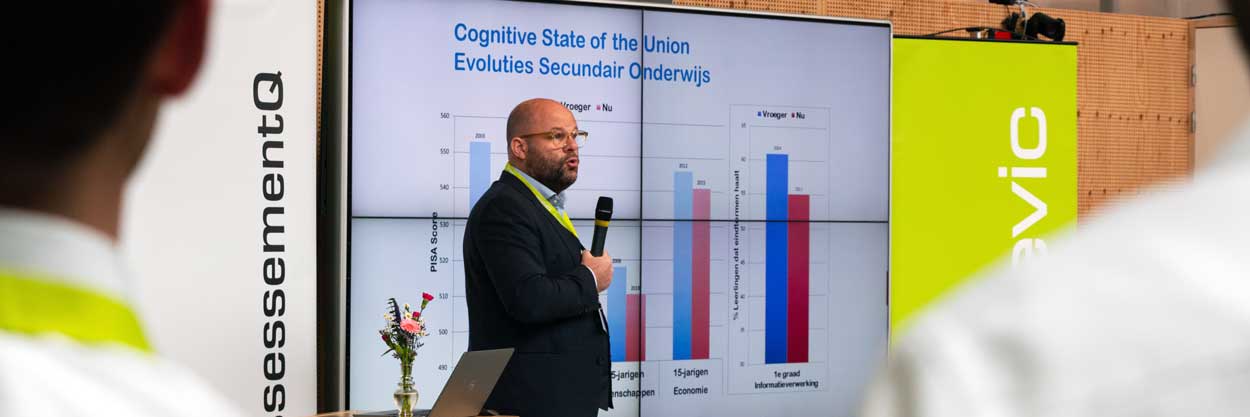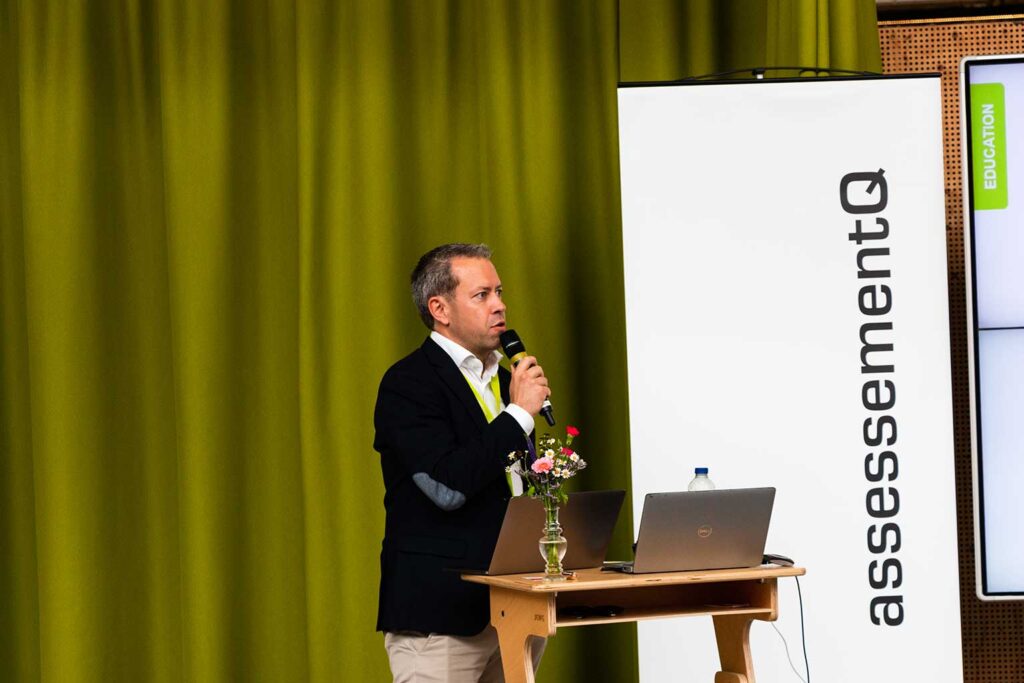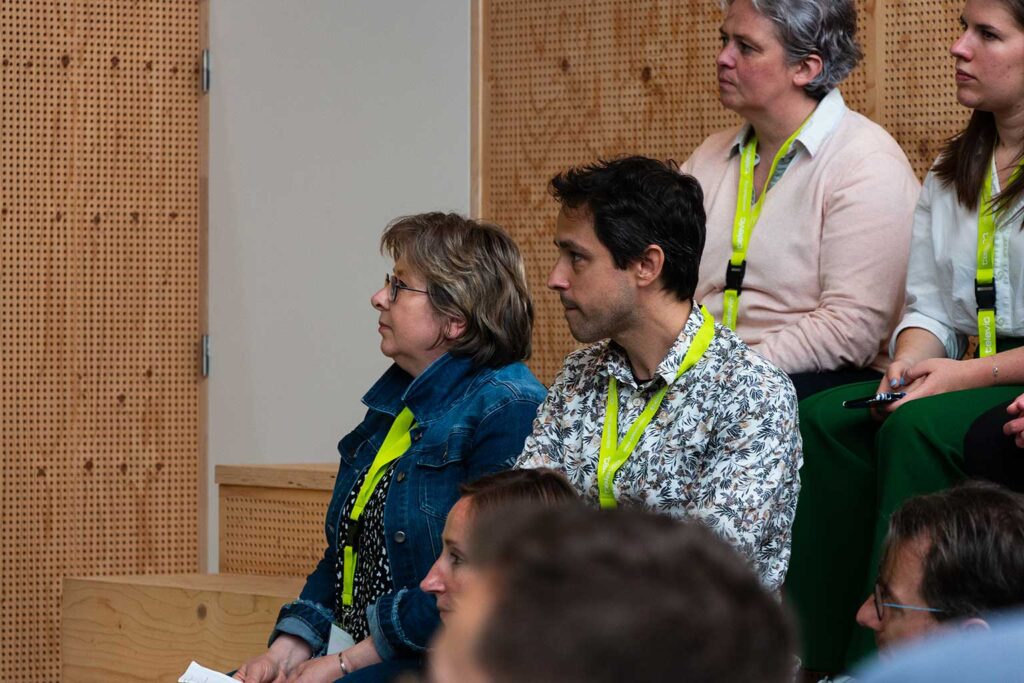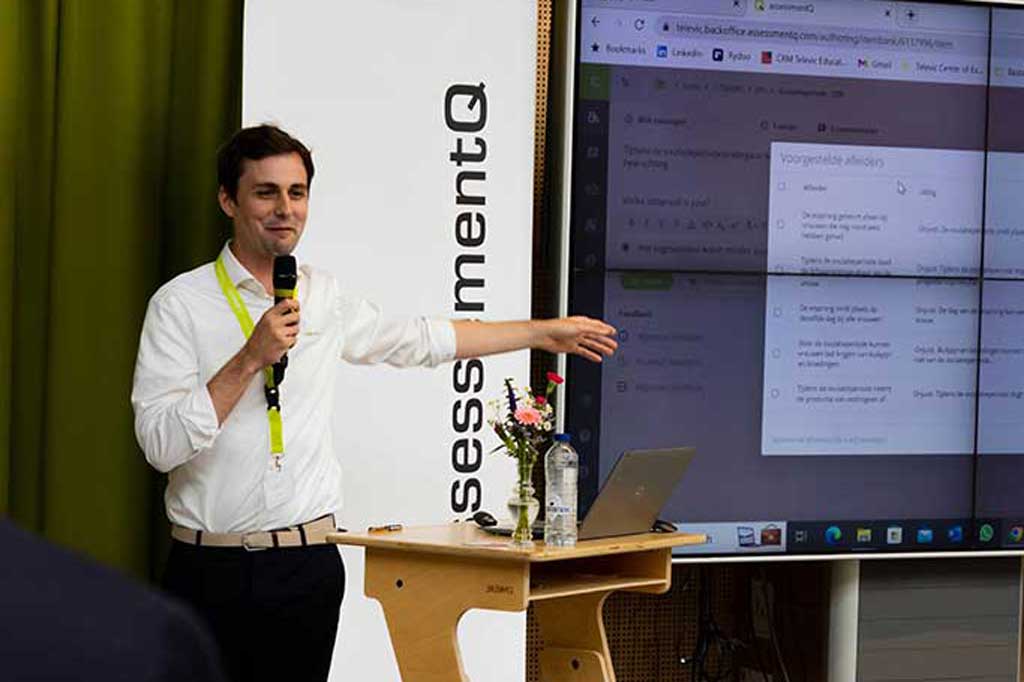
The power of learning and evaluation
5 things everyone should know about learning & evaluation
During our most recent ‘Customer Experience’ event, we had the pleasure of welcoming the cognitive psychologist Professor Wouter Duyck as a guest speaker. He blew everyone away with his insightful presentation on ‘the power of learning and evaluation’. Here are our five key takeaways from the presentation.
1. Cognitive skills are under threat
Professor Duyck immediately launched into his presentation with a message that was not overly optimistic. International research shows that the cognitive skills of young people – i.e. the workers and entrepreneurs of tomorrow – have systematically deteriorated over the past 20 years in many Western countries. In summary, this decline has occurred in both primary and secondary education, as well as in every field of knowledge (reading, maths, world orientation, economics, IT, etc.). In short: the future of our knowledge-based society is under threat.
2. Knowledge = prosperity
It is important to note that knowledge cannot be something separate in itself. For example, it is the strongest predictor of a community’s future economic prosperity. What’s more, there is a clear link with ‘softer’ areas within society, such as the quality of social services, social behaviour, entrepreneurship and citizenship. In other words, a society’s overall knowledge level invariably translates into higher overall levels of welfare and well-being.
3. ‘Study, study’ versus ‘Study, test’
Now, what role does testing play in all this? Well, testing has a proven effect on learning. Several scientific studies have shown that students and employees learn not only during their training, but also when taking tests or exams. For example, one well-known experiment involves dividing a group of participants into two subgroups:
- Group 1: studies a text passage twice in a row (i.e. ‘study, study’)
- Group 2: studies the text passage just once, before then taking a test on it (i.e. ‘study, test’)
The results are remarkable. While Group 1 scored higher on a knowledge test about the studied text passage immediately after studying (after five minutes), Group 2 performed significantly better over the long term (two days after, one week afterwards). From this, we can say that acquired knowledge sticks longer and better using the ‘study, test’ method than the ‘study, study’ technique. In psychology, people refer to this as the ‘test effect’.
 4. ‘A combined approach’ works best
4. ‘A combined approach’ works best
Another study found that it is also good to utilise a ‘combined approach’. In many schools and businesses, we see that learning modules are taught in sequential order, with an assessment following each module. However, this method proves less effective than when multiple modules are tested simultaneously in a ‘broader’ test across the various modules. In other words, while evaluation does make people learn, they learn the most when tested across multiple modules all at once.
5. Learning gains prove central
Systematic testing and monitoring therefore lead to demonstrable learning gains, both in education and business. You can measure and monitor these learning gains by testing repeatedly and by comparing pre- and post-assessment scores to chart the development of pupils, students and employees. A good example of such assessments are the centralised ‘Flemish central assessments‘ that are set to be introduced into Flemish education in the next school year. Last but not least, Professor Duyck concludes that systematic learning gain measurements also prove an invaluable tool in the world of business when it comes to maintaining or increasing knowledge levels among employees.





































